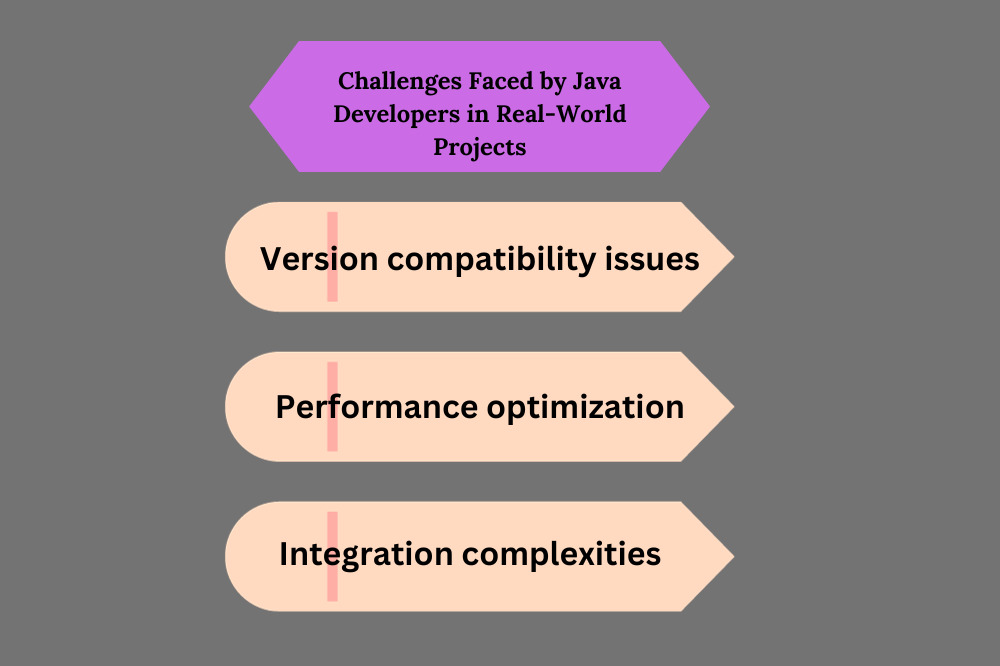Java Programming: Navigating Complexity Through Job Support for Seamless Project Success
Introduction
Definition of Job Support in Java Programming
Job support in Java programming refers to the assistance provided to professionals working on Java-related projects. It involves aiding developers, engineers, or teams in resolving technical challenges, understanding complex concepts, troubleshooting code, and implementing best practices within the Java ecosystem.

Importance and Relevance in Real-World Projects
In the realm of real-world projects, job support in Java programming holds immense significance. Java is a widely-used, versatile programming language, employed in diverse domains like web development, mobile applications, enterprise software, and more. Given its broad applications, robust job support becomes essential for various reasons:
Technical Complexity: Java, with its extensive libraries, frameworks, and evolving versions, often poses intricate challenges that necessitate expert guidance to navigate efficiently.
Industry Standards and Best Practices: Staying updated with the latest advancements, adhering to best practices, and ensuring code quality requires continuous support and guidance.
Project Timelines and Quality Assurance: Timely resolution of issues and adherence to quality standards are crucial for project success, where job support becomes instrumental.
Skill Enhancement: Continuous learning and skill development through job support aid professionals in advancing their Java expertise, staying competitive in the job market.
Significance of Job Support in Java Programming
Addressing Complex Issues and Challenges
Java projects often encounter complex issues, such as performance bottlenecks, memory leaks, or intricate logic errors. Job support plays a pivotal role in identifying, analyzing, and resolving these challenges effectively. Experienced professionals offer insights, debugging techniques, and strategies to tackle such complexities, ensuring smoother project execution.
Enhancing Productivity and Efficiency
Efficiency and productivity are paramount in project development. Job support contributes significantly by streamlining processes, optimizing code, suggesting performance enhancements, and recommending efficient design patterns. This guidance helps teams deliver high-quality solutions within stipulated timelines, thus increasing overall productivity.
Continuous Learning and Skill Development
Java, being a dynamic language, undergoes regular updates, introducing new features and methodologies. Job support facilitates continuous learning by providing access to updated resources, training on new tools, and mentoring on emerging trends. This continuous learning environment fosters skill development and encourages professionals to stay abreast of the latest advancements in Java programming.
Challenges Faced by Java Developers in Real-World Projects
Version compatibility issues: Java has a history of frequent updates and releases. This can lead to compatibility issues when integrating new libraries or frameworks with older codebases. Developers often encounter challenges in ensuring that their code works seamlessly across different Java versions.
Performance optimization: Java offers high-level abstractions, which can sometimes lead to less optimized code. Developers need to carefully optimize performance-critical sections to ensure efficient memory management, minimize garbage collection overhead, and enhance execution speed.

Security concerns: Security is a critical aspect of software development. Java, while known for its built-in security features like sandboxing, faces challenges with vulnerabilities in libraries, third-party dependencies, and the need for constant vigilance against evolving cyber threats.
Integration complexities: Real-world projects often involve integrating various components, databases, APIs, or services. Java developers encounter complexities in ensuring seamless communication and compatibility between different systems, especially when dealing with legacy systems or diverse technologies.
Scenarios Demonstrating the Importance of Job Support
Debugging and Troubleshooting Complex Code
Debugging complex code is an integral part of software development. In Java programming, identifying and fixing elusive bugs that impact production systems can be a daunting challenge. A skilled job support team is crucial in this scenario. They possess not only technical expertise but also a systematic approach to trace, diagnose, and resolve these bugs efficiently. Their familiarity with Java’s intricacies helps in pinpointing issues, ensuring smoother functioning of critical systems.
Performance Optimization and Tuning
Optimizing the performance of Java applications is vital for delivering a seamless user experience. Job support professionals specialize in identifying performance bottlenecks, profiling code, and implementing optimizations. They can fine-tune critical applications, ensuring they operate at peak efficiency. This expertise spans optimizing algorithms, memory management, and utilizing Java’s features effectively to enhance overall performance.
Resolving Compatibility and Integration Issues
In today’s interconnected tech landscape, integrating multiple systems is commonplace. However, this integration often comes with compatibility challenges. Job support in Java programming plays a pivotal role in navigating these complexities. Professionals in this role have a deep understanding of Java’s compatibility nuances, allowing them to troubleshoot integration issues efficiently. They ensure seamless communication between systems, enabling the smooth flow of data and operations.
Conclusion
Recap of the Significance of Job Support in Java Programming
Job support in Java programming emerges as an indispensable element in achieving robust, functional software. Its significance lies in its ability to navigate the intricate world of Java development, providing critical assistance in debugging, performance enhancement, and system integration. Without this support, encountering and overcoming the challenges inherent in Java programming becomes an arduous task.
Emphasizing Its Role in Addressing Challenges and Ensuring Project Success
The conclusion reinforces the pivotal role job support plays in addressing challenges faced in Java programming. From troubleshooting elusive bugs to fine-tuning performance and ensuring seamless integration, these professionals contribute significantly to project success. They serve as the backbone, supporting developers and teams to overcome hurdles, meet deadlines, and ultimately deliver high-quality, functional software.
Explore the role of job support in overcoming challenges, optimizing code, and ensuring project success in Java development. Ready to elevate your Java programming skills? Click here for insights into Java job support and navigate the intricacies of programming for a successful project journey.
